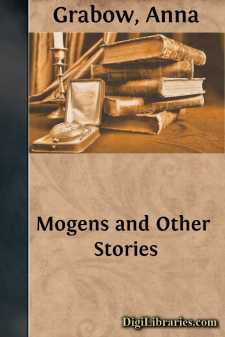Categories
- Antiques & Collectibles 13
- Architecture 36
- Art 48
- Bibles 22
- Biography & Autobiography 815
- Body, Mind & Spirit 144
- Business & Economics 28
- Children's Books 18
- Children's Fiction 14
- Computers 4
- Cooking 94
- Crafts & Hobbies 4
- Drama 346
- Education 58
- Family & Relationships 59
- Fiction 11834
- Games 19
- Gardening 17
- Health & Fitness 34
- History 1378
- House & Home 1
- Humor 147
- Juvenile Fiction 1873
- Juvenile Nonfiction 202
- Language Arts & Disciplines 89
- Law 16
- Literary Collections 686
- Literary Criticism 179
- Mathematics 13
- Medical 41
- Music 40
- Nature 179
- Non-Classifiable 1768
- Performing Arts 7
- Periodicals 1453
- Philosophy 65
- Photography 2
- Poetry 896
- Political Science 203
- Psychology 44
- Reference 154
- Religion 515
- Science 126
- Self-Help 85
- Social Science 83
- Sports & Recreation 34
- Study Aids 3
- Technology & Engineering 59
- Transportation 23
- Travel 463
- True Crime 29
Our website is made possible by displaying online advertisements to our visitors.
Please consider supporting us by disabling your ad blocker.
Mogens and Other Stories
by: Anna Grabow
Description:
Excerpt
In the decade from 1870 to 1880 a new spirit was stirring in the intellectual and literary world of Denmark. George Brandes was delivering his lectures on the Main Currents of Nineteenth Century Literature; from Norway came the deeply probing questionings of the granitic Ibsen; from across the North Sea from England echoes of the evolutionary theory and Darwinism. It was a time of controversy and bitterness, of a conflict joined between the old and the new, both going to extremes, in which nearly every one had a share. How many of the works of that period are already out-worn, and how old-fashioned the theories that were then so violently defended and attacked! Too much logic, too much contention for its own sake, one might say, and too little art.
This was the period when Jens Peter Jacobsen began to write, but he stood aside from the conflict, content to be merely artist, a creator of beauty and a seeker after truth, eager to bring into the realm of literature "the eternal laws of nature, its glories, its riddles, its miracles," as he once put it. That is why his work has retained its living colors until to-day, without the least trace of fading.
There is in his work something of the passion for form and style that one finds in Flaubert and Pater, but where they are often hard, percussive, like a piano, he is soft and strong and intimate like a violin on which he plays his reading of life. Such analogies, however, have little significance, except that they indicate a unique and powerful artistic personality.
Jacobsen is more than a mere stylist. The art of writers who are too consciously that is a sort of decorative representation of life, a formal composition, not a plastic composition. One element particularly characteristic of Jacobsen is his accuracy of observation and minuteness of detail welded with a deep and intimate understanding of the human heart. His characters are not studied tissue by tissue as under a scientist's microscope, rather they are built up living cell by living cell out of the author's experience and imagination. He shows how they are conditioned and modified by their physical being, their inheritance and environment, Through each of his senses he lets impressions from without pour into him. He harmonizes them with a passionate desire for beauty into marvelously plastic figures and moods. A style which grows thus organically from within is style out of richness; the other is style out of poverty.
In a letter he once stated his belief that every book to be of real value must embody the struggle of one or more persons against all those things which try to keep one from existing in one's own way. That is the fundamental ethos which runs through all of Jacobsen's work. It is in Marie Grubbe, Niels Lyhne, Mogens, and the infinitely tender Mrs. Fonss.
They are types of the kind he has described in the following passage: "Know ye not that there is here in this world a secret confraternity, which one might call the Company of Melancholiacs? That people there are who by natural constitution have been given a different nature and disposition than the others; that have a larger heart and a swifter blood, that wish and demand more, have stronger desires and a yearning which is wilder and more ardent than that of the common herd. They are fleet as children over whose birth good fairies have presided; their eyes are opened wider; their senses are more subtile in all their perceptions. The gladness and joy of life, they drink with the roots of their heart, the while the others merely grasp them with coarse hands."
He himself was one of these, and in this passage his own art and personality is described better than could be done in thousands of words of commentary.
Jens Peter Jacobsen was born in the little town of Thisted in Jutland, on April 7, 1847....


